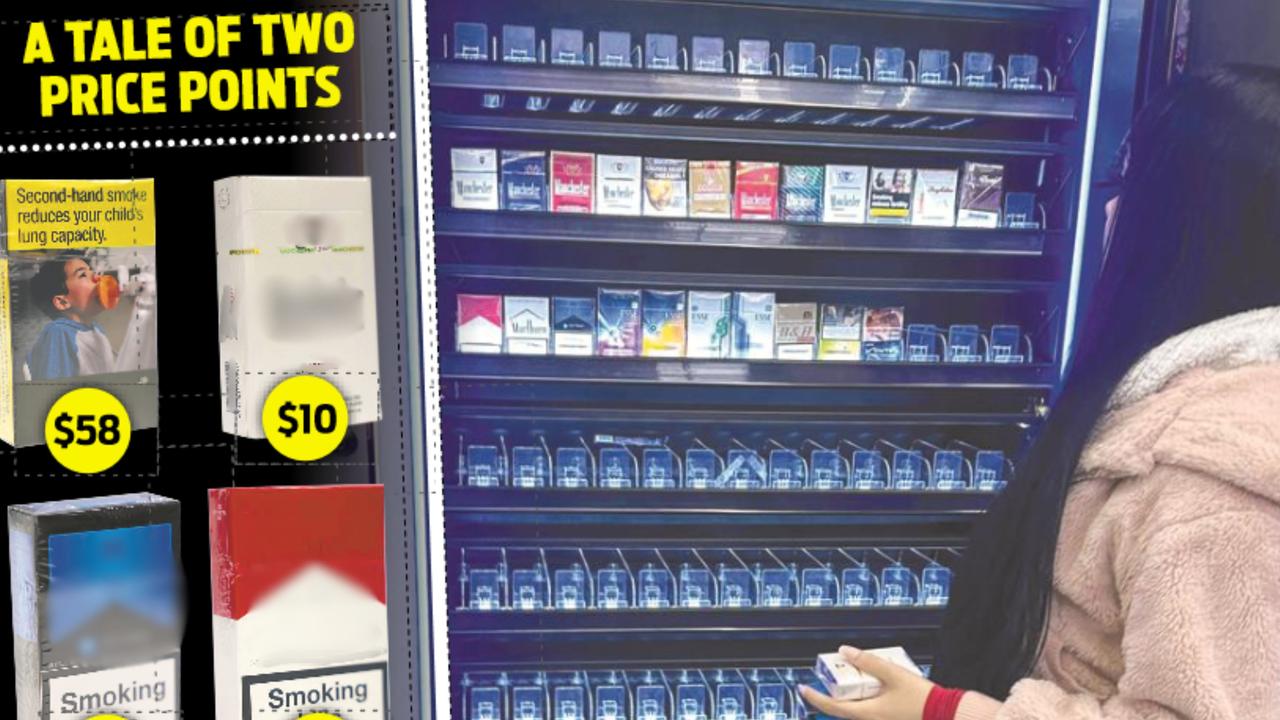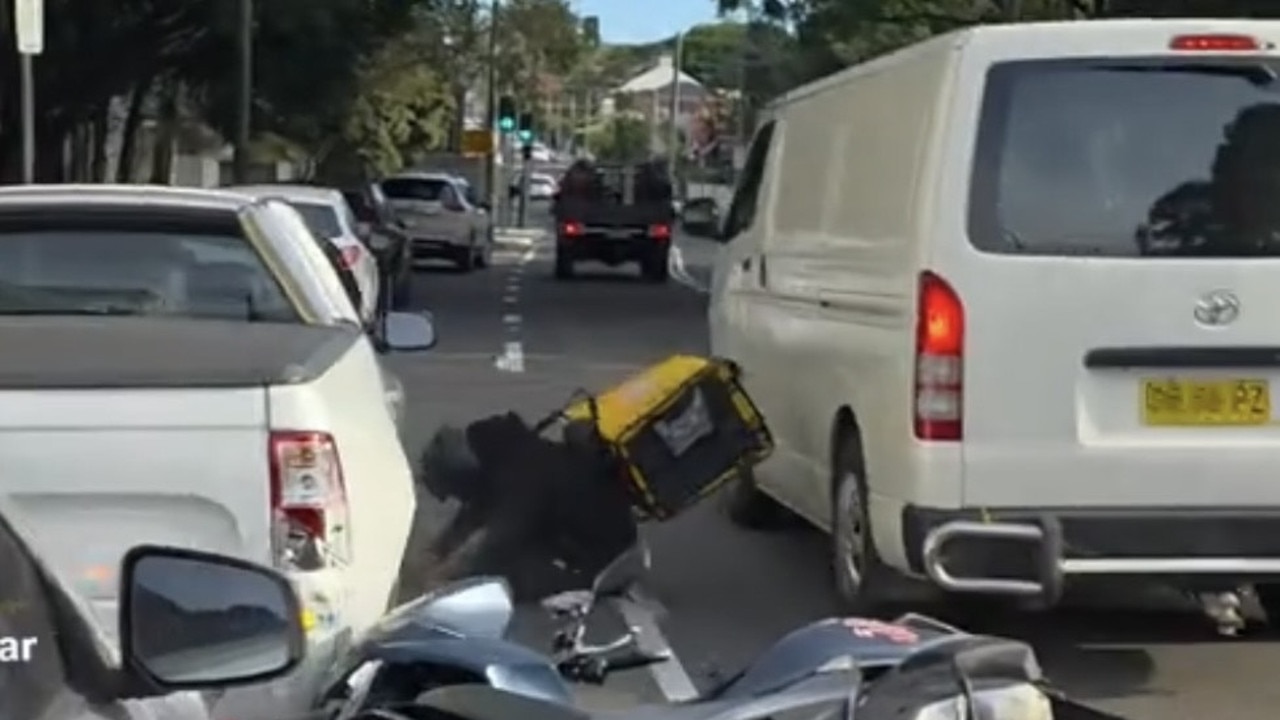Parents of kids with DIPG say funding for trial urgently needed
Ryley Kemp died 14 months after he was diagnosed with brain cancer, following a torturous battle with the aggressive monster in his head. He is the poster boy for a campaign for funding that no one is listening to.
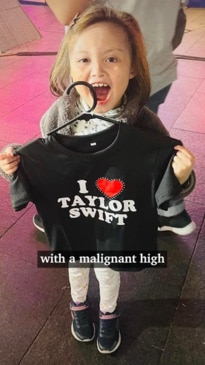
Exclusive: Federal Health Minister Mark Butler knows the tragic story of Ryley Kemp who lost the battle with the aggressive monster in his head earlier this year – the minister heard it first-hand from the eight-year-old’s grieving mum.
Just months after Ryley’s death, Beau Kemp with husband Terry found the courage to stand with other parents and medical researchers at Parliament House in Canberra to present their submission for urgent research funding to stop the insidious childhood brain cancer known as DIPG.
After their heartfelt pleas they presented Mr Butler with a submission outlining the need for $21m.
On the front cover of the document, held by the minister as he posed for a photo with lead researcher Professor Matt Dun, was a picture of the ever-smiling Ryley.
Negotiations commenced in September, more meetings in November and now the medical experts and grieving parents are pleading for funding today, not tomorrow.
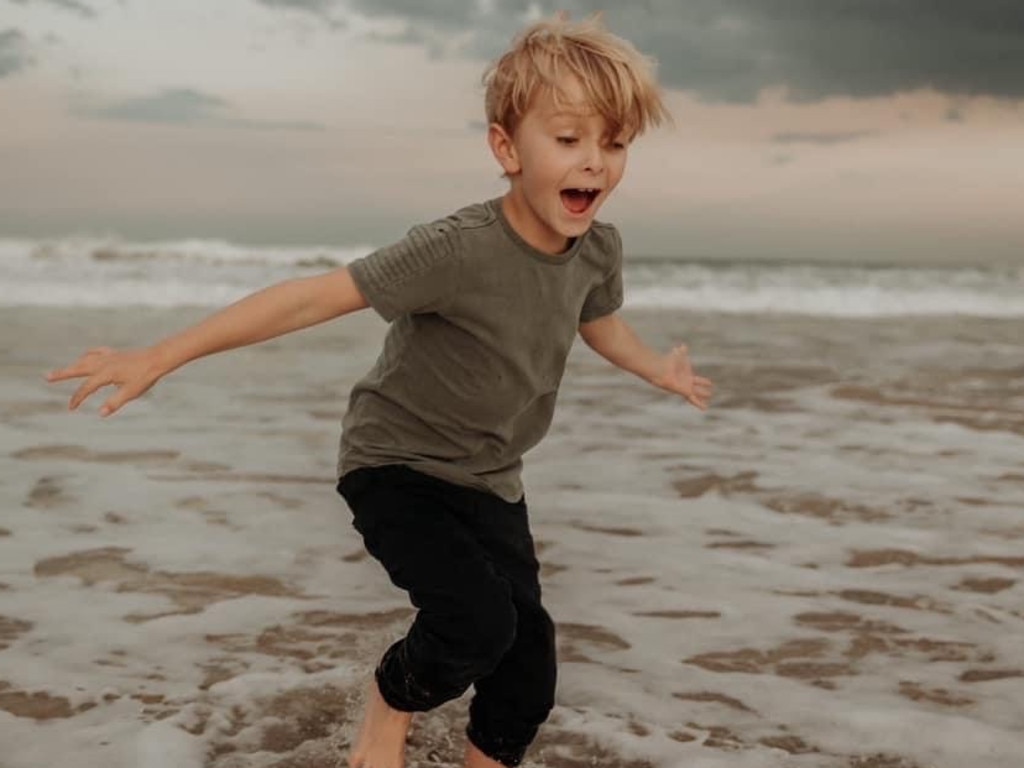
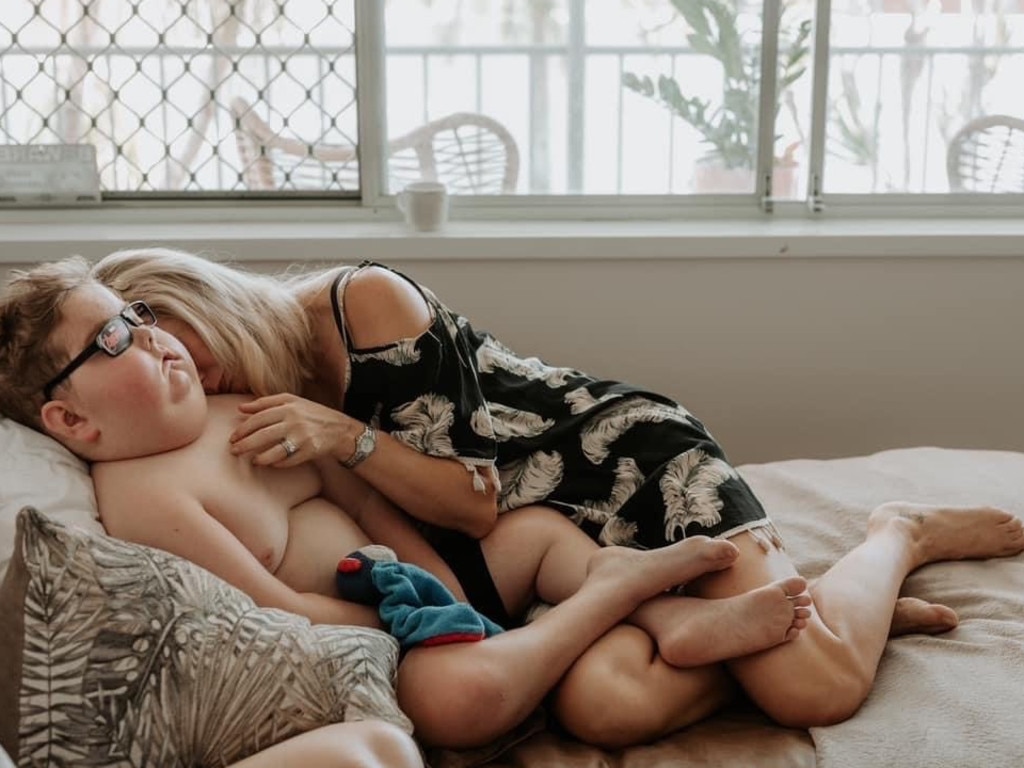
“My husband and I are currently overseas trying to run away from our life, but completely lost and overwhelmed by this world we no longer fit into,” Ms Kemp told the Saturday Telegraph this week. “My Ryley battled for 14 months. The last four months can only be described as torture.”
Ms Kemp attended the meeting with the minister in the hope she could find a purpose: stop other parents from experiencing what her family has gone through.
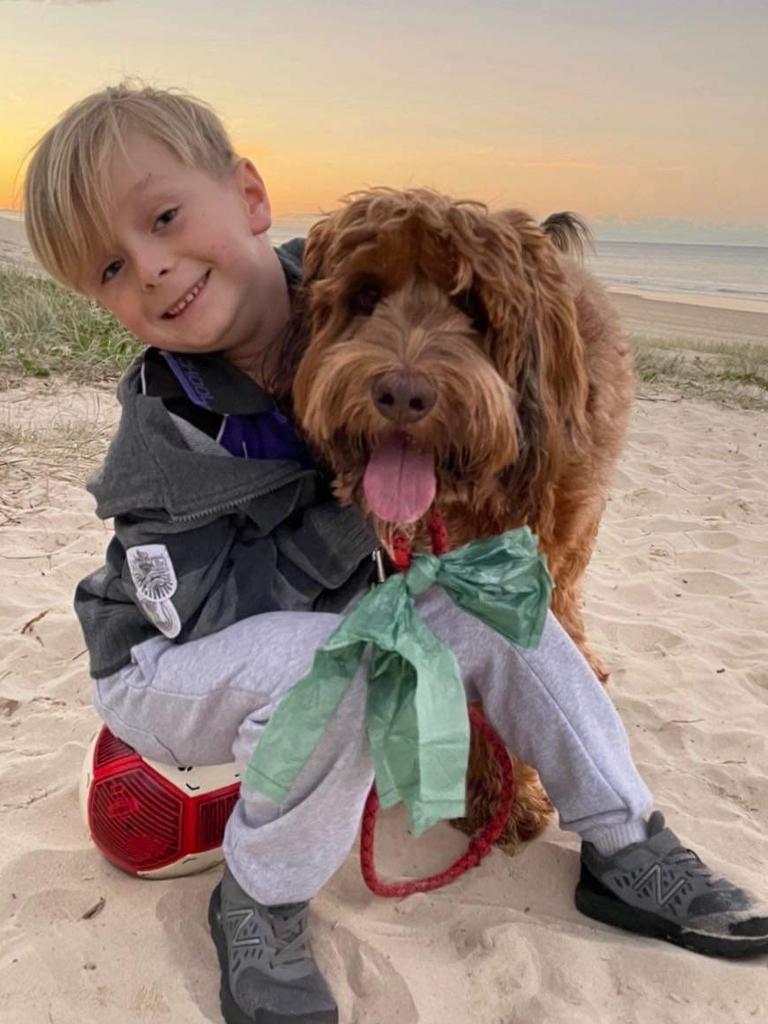
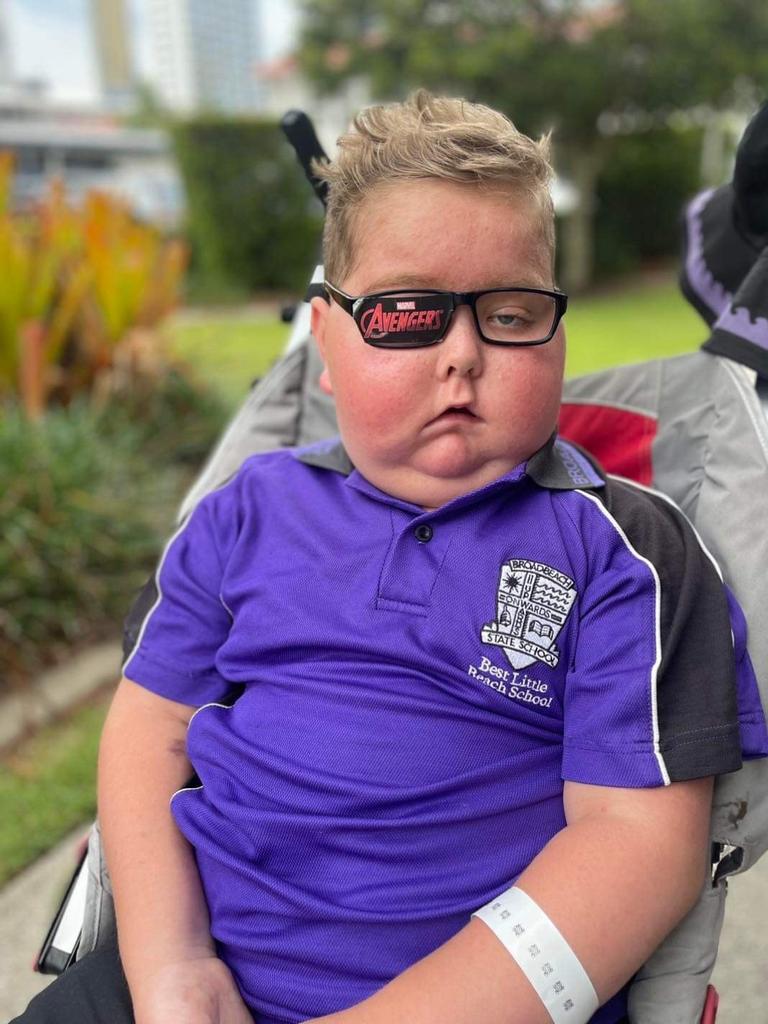
She told the gathering: “Imagine that tomorrow you take your child for an optometrist appointment, thinking they may need glasses … but within hours you are told: ‘Your child has DIPG, your child has 6 to 12 months to live.
“’We cannot operate on your child for where the tumour is located. Chemotherapy is not effective on this type of cancer. There are no effective treatments other than palliative radiation that will only buy them months. We suggest you go home and make memories’.”
Ms Kemp said it was almost impossible to believe these same words had been spoken by doctors all over the world for more than 60 years.
“And that within this fortnight in Australia, a family will be taken into a small room and told these words.”
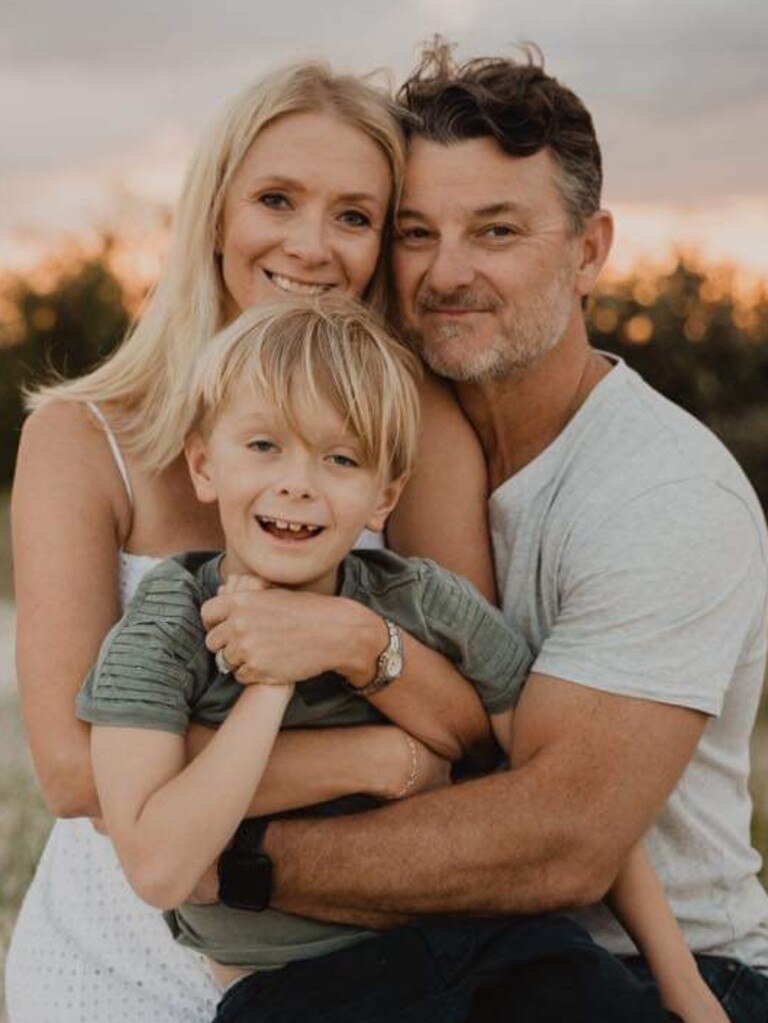
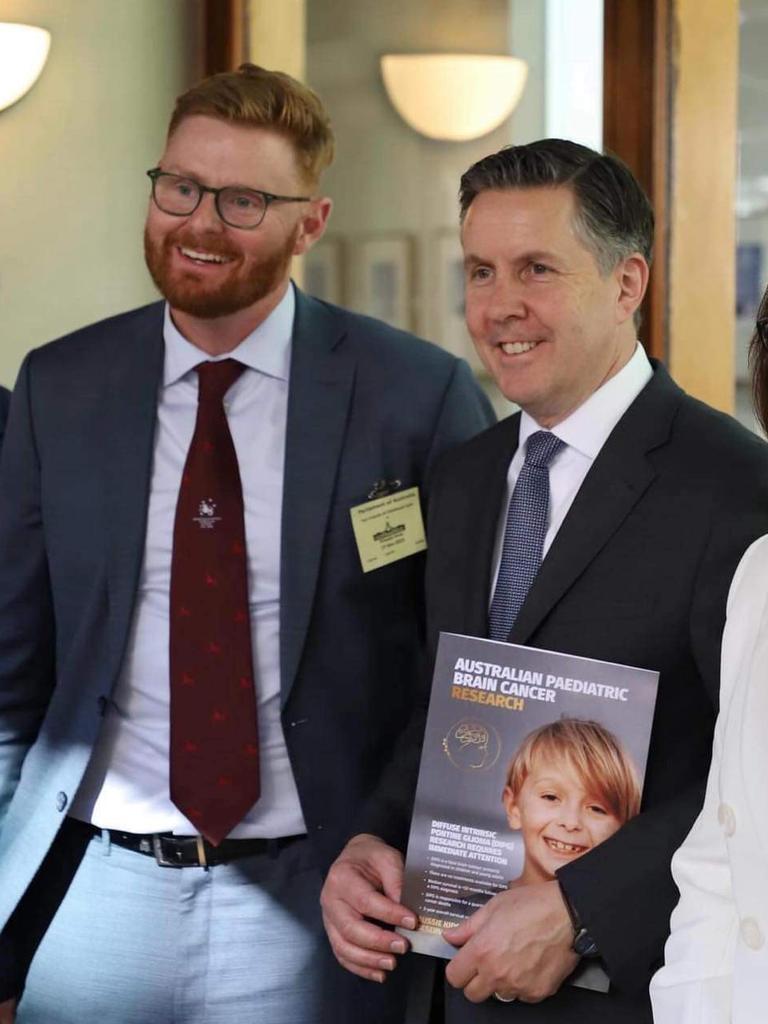
Ms Kemp said she and Terry were gutted to realise there were no options, no path forward or plan from their medical team.
“We researched the internet, contacted overseas doctors, desperately reached out to families all over the world trying to find a glimmer of hope, because there was nothing on offer here,” she said.
But now there is hope in Australia — thanks to the work of Professor Dun and others — and funding could mean the lives of children still fighting DIPG and the ones still to come can have a different outcome.
The parents who have lost their children are selflessly fighting for children like Maddie Suy, who recently told her mum and dad she wanted to change the spelling of her first name — she didn’t want it to end with “die”. Maddy’s tumour is growing, She needs a miracle.
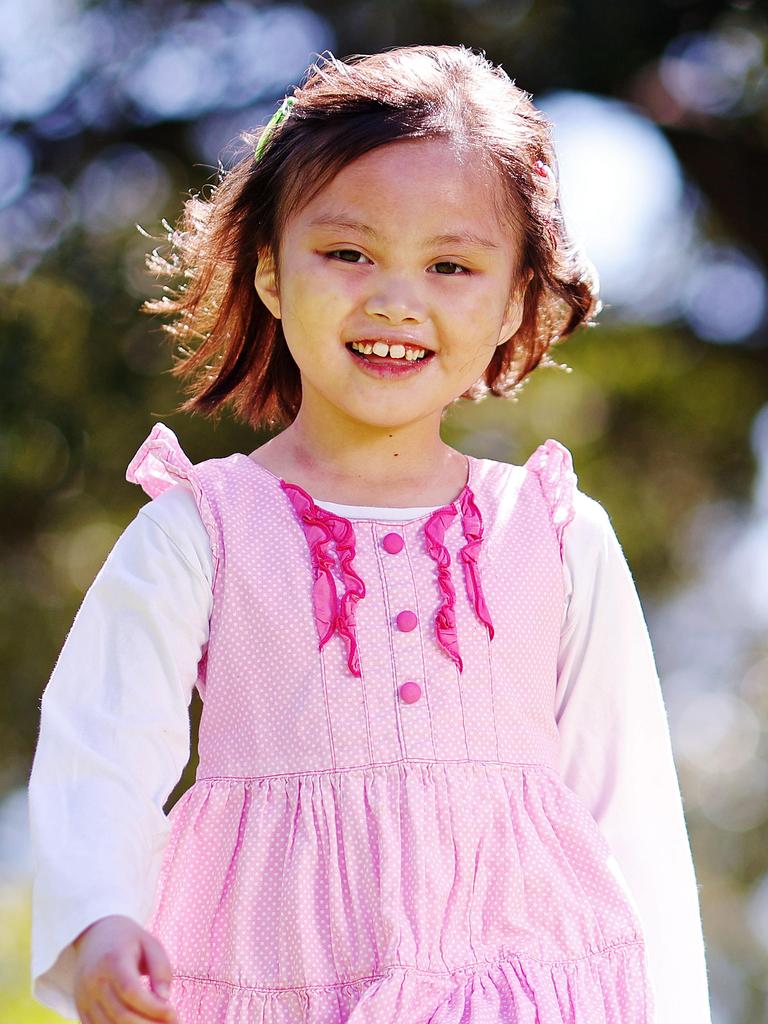
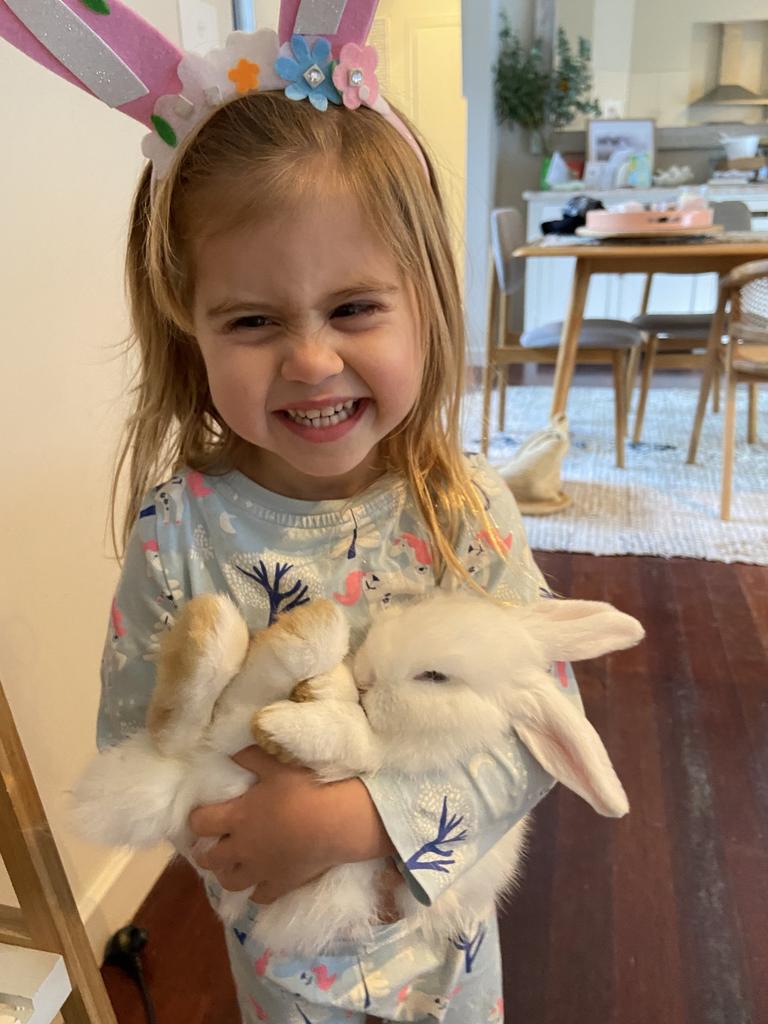
In Newcastle little Flo Turner continues her battle. Just one month ago was singing, playing and riding her scooter.
“I would give anything to hear her beautiful voice, watch her play dress-ups and jump in the pool again,” her mum Michelle Turner said.
The Flo she sees today is unrecognisable. The steroids have changed the shape of her face and the DIPG tumour invading her brain means she is now unable to use her right hand, get herself up or walk unassisted.
The once bubbly preschooler is now limited to a few sentences.
But Flo is still fighting and her parents will try everything to keep their baby alive.
TOMORROW IS TOO LATE FOR FUNDING
Lucy McAleer spent the last five weeks of her life trapped in a body that wasn’t working.
Her mum and dad would ask her questions and she would blink to tell them yes or no.
The DIPG tumour growing in her brain reared its ugly head in July 2021, two days after her eighth birthday. She lost her fight in March 12, 2022.
Lucy was a young girl who loved flamingoes, green sea turtles, swimming, girl guides, basketball and Irish dancing.
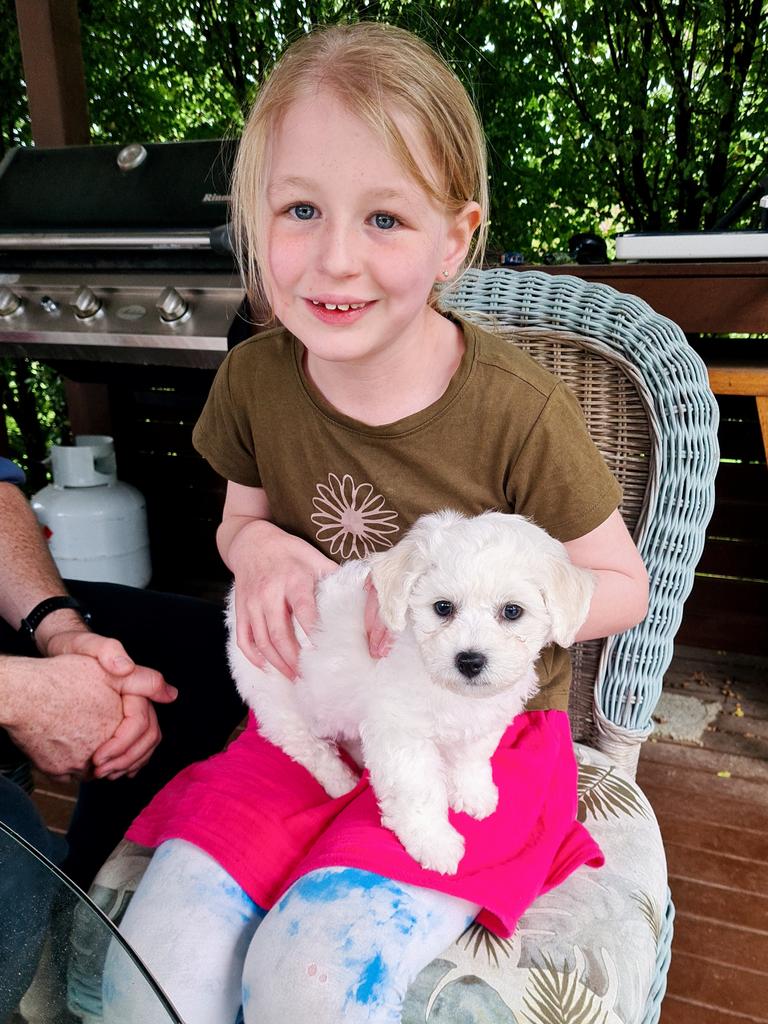
“In the lead-up to Lucy’s diagnosis we started noticing some changes in her from very small things through to her eyes looking more sunken in and glazed over,” mum Nicole said.
“She started losing her balance, would fall over and had a fear of heights … going up and down stairs she was holding on very tightly to the rails.
“The main change was when Lucy was at her basketball training and was hit in the head with a basketball. She rubbed her head and continued, however once we were in the car she became very lethargic, complained of a bad headache, her speech became slurred and as we got home she was falling over and dizzy.”
After hospital tests her parents were told the same devastating news 20 Australian parents receive each year — Lucy had an inoperable tumour and she had nine to 12 months to live.
Her mum said this week: “How many more children need to keep dying before the government steps up and gives us the funding we, our children and future families deserve in order to save lives?
“Are our children not worth living? It sure feels like it. It seems to be the ongoing excuse of ‘It’s rare so we won’t invest in saving children’s lives’ excuse.”
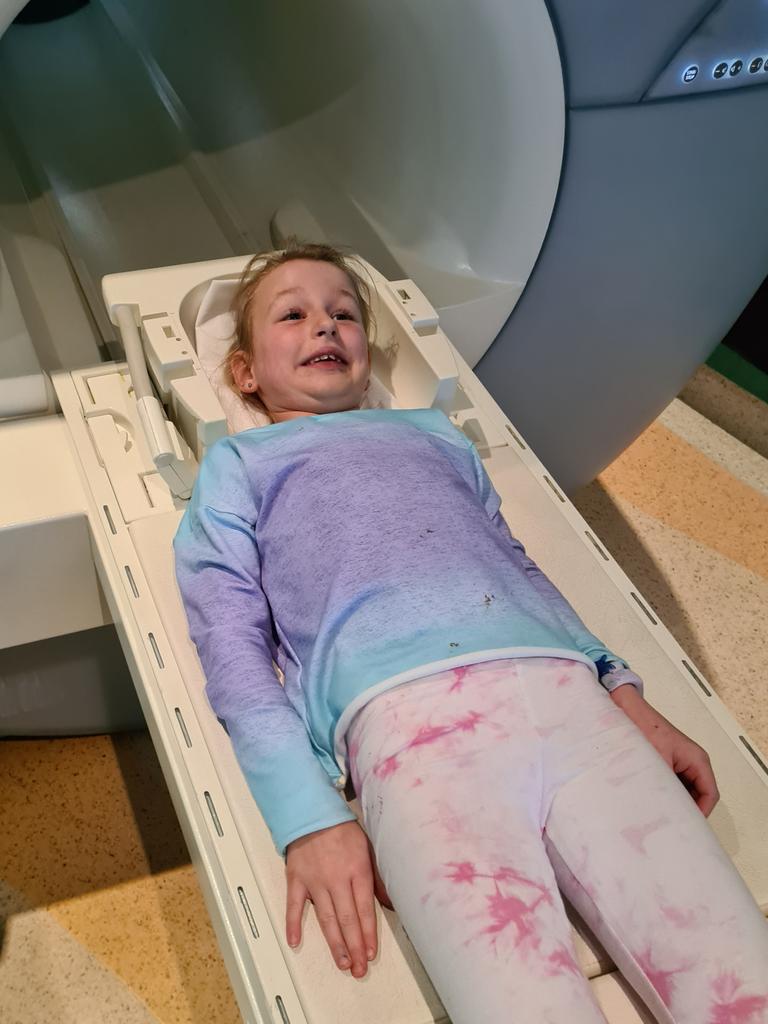
When Lucy was diagnosed another child had been on the combination drug of paxalisib and ONC201 but the trial wasn’t yet available in Australia.
“Lucy missed out on that opportunity to be able to try. Other children also missed out on the same opportunity, yet this trial was open in other countries but it was developed by Matt Dun, here in Australia.
“Why does this go overseas before it opens up here?”
Ms McAleer said Australia’s incredible scientists “can’t do it all without the help from government funding”.
“Desperate families, grieving parents and communities are fundraising for research, but we can’t do it all without government funding, which seems to continually keep getting knocked back or very minimal is being invested.
“Children are, and will, keep dying without funding.
“We need funding now, not tomorrow, three months or time or six months. That’s too late.”
‘MUM, I AM SO SCARED I WILL DIE’
Sydney eight-year-old Eve Sari-Daher’s DIPG tumour has shrunk by 80 per cent and she is still alive almost 34 months post diagnosis.
“In this time, the tumour has remained stable but it is still there, a monster lurking in the background of our beautiful girl’s brain which there is a 99 per cent chance it will wake up at any moment,” her mum Angie said.
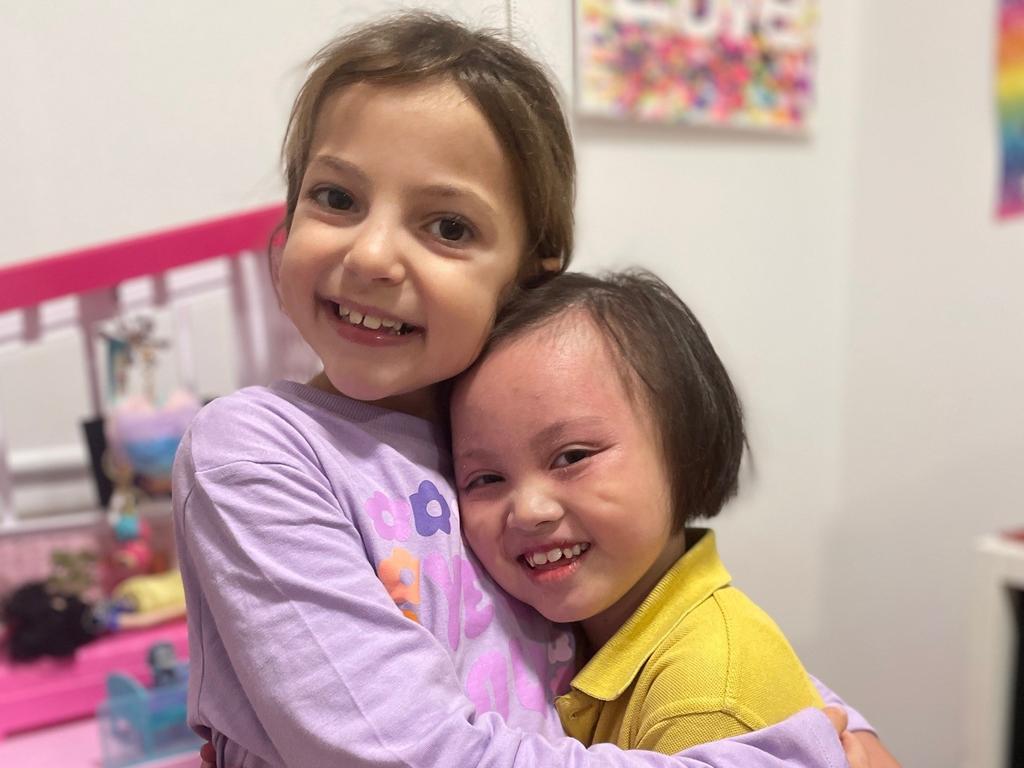
Two weeks ago Eve broke down in tears and told her mum she is scared to die, she knows the other kids with DIPG all die.
She told her mum “I say ‘goodnight I love you’ every night because I want you to know that I love you just in case I die in my sleep”.
Diagnosed in March 2021, Eve started on paxalisib and ONC201 — the trial created by Australia’s Professor Matt Dun — after completing radiation therapy.
She accessed the drug paxalisib on compassionate grounds almost a year before the trial had opened in Australia due to it being identified as a drug to target one of her three mutations from her biopsy report.
The family sources ONC201 from Germany on their own at $3000 a month.
Ms Sari was part of the group of parents and researchers who met with Health Minister Mark Butler, telling him: “How can I promise her hope when there is little to no funding into this researching and this disease?”
Ms Sari-Daher, Tamer Daher, Hanna Pringle and Beau and Terry Kemp, along with Prof Dunn, founded the advocacy group Australian DIPG families.
The group has met at Parliament House with multiple ministers on a number of occasions.
Originally published as Parents of kids with DIPG say funding for trial urgently needed



